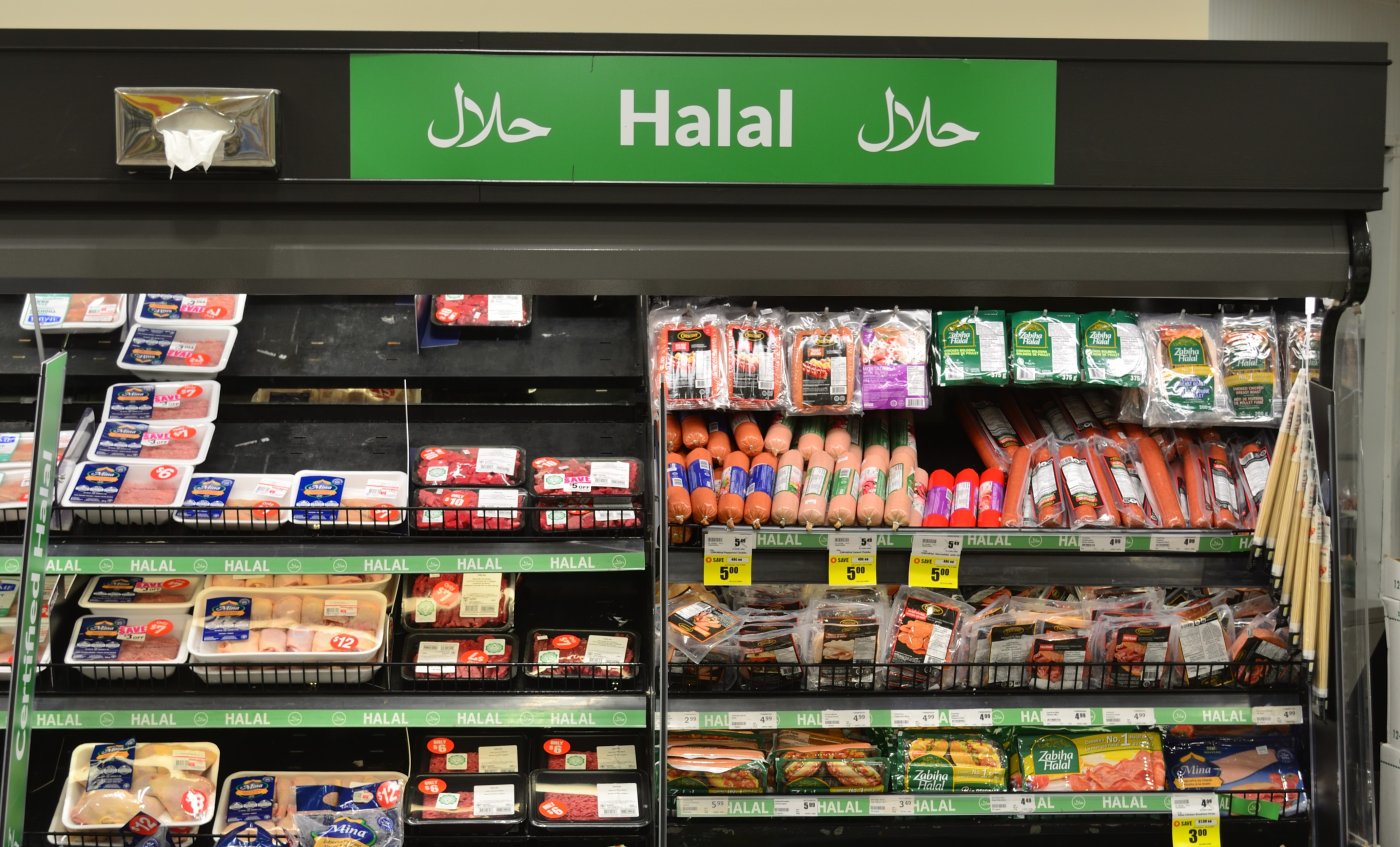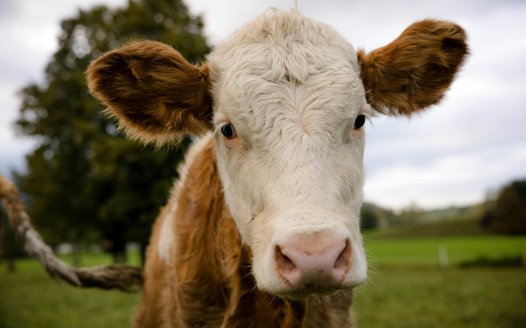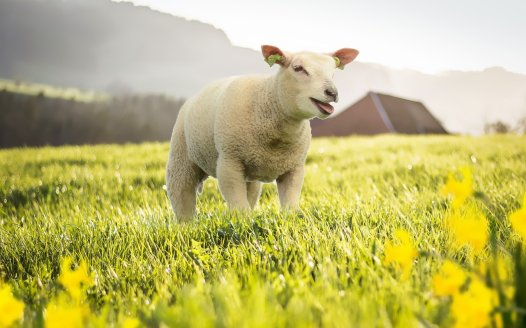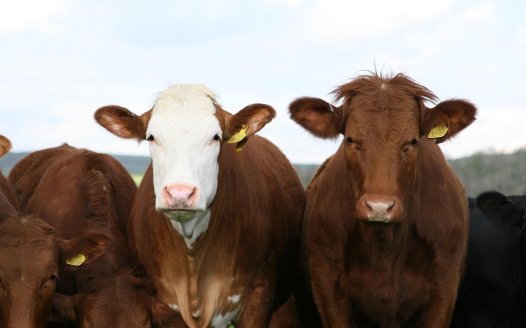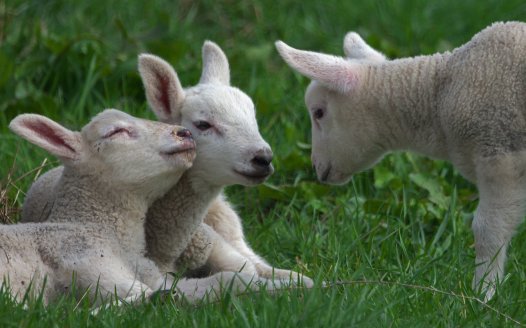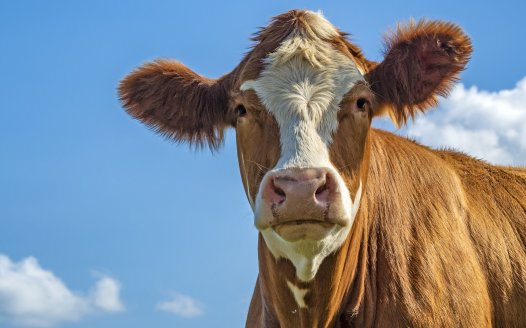Ritual slaughter: is the government about to renege on its commitment to consult?
Posted: Fri, 12th Jan 2024 by Stephen Evans
Stephen Evans criticises the government's U-turn on animal welfare and says food labelling policy should serve consumers rather than religious interests.
Early last year the government committed to consulting on food labelling, including plans for clear, mandatory labels on meat from animals slaughtered in a halal or kosher way without pre-stunning.
Shamefully, the government now looks set to backtrack, leaving consumers in the dark about the provenance of the meat they buy.
Animal welfare laws require all animals to be stunned before slaughter to minimise avoidable pain, distress, or suffering. The only exemption is for religious communities to meet Jewish and Muslim religious dietary preferences for kosher and halal meat.
This religious exemption has long been opposed by secularist and animal welfare organisations.
But if such an exemption exists, surely it's reasonable to inform consumers whether animals used for the meat products they're buying were slaughtered without stunning - a method considered inhumane and unnecessarily cruel.
The public certainly thinks so. A call for evidence from the Department for Environment, Food & Rural Affairs (Defra) in 2021 revealed nearly 97% of respondents wanted to see mandatory labelling of meat to indicate the method of slaughter.
This was reflected by the National Secular Society's own polling in 2022, which found that well over two thirds (72%) of the population think food produced from religious non-stun slaughter methods should be clearly labelled. Only 4% did not support labelling.
Given such strong public support, it's alarming that the government appears to be reneging on its previous commitment on this issue.
The first warning signs came last year. In response to a question in parliament from Labour MP Kerry McCarthy in September, Defra minister Mark Spencer said the government "do not consider the time is right" to consult on this issue, despite the "public appetite for improved welfare labelling".
This week, the Secretary of State has announced plans to "rapidly consult on clearer labelling" to tackle "unfairness created by misleading labelling and protect farmers and consumers". However, the consultation is expected to steer clear of issues concerning animal welfare information, such as method of slaughter.
Opposition to accurate labelling comes primarily from religious lobby groups connected to the non-stun slaughter industry. Accurate labelling of non-stun slaughter would undoubtably have negative effects on individuals and businesses who engage in such practices for commercial purposes. That's because theirs is a business model that relies on meat from non-stunned animals being sold on to consumers unaware of how it was slaughtered.
The law requires meat from animals killed under the religious exemption to be limited to religious communities it is produced for. But in practice there is minimal targeting of supply, and non-stun meat is routinely sold or served to consumers who may not want their meat produced in this way. In 2022, figures suggested over half of all cattle religiously slaughtered for kosher meat was sold on the general market unlabelled.
There are even schools where non-stun meat is served up as standard.
Of course, animal welfare laws need not be compromised by accommodations to religion at all. Pre-stunned meat has long been acceptable to many Muslims and most halal meat is pre-stunned. New Zealand, which has no exemption to the requirement for pre-slaughter stunning, is a major exporter of halal meat to countries with predominantly Muslim populations around the world, including the United Arab Emirates, Malaysia, and Saudi Arabia.
New Zealand is but one of many other countries which prohibit the slaughter of animals without stunning. This demonstrates refusing to grant a religious exception to the stunning requirement is compatible with obligations to protect freedom of religion or belief, provided a ban is in pursuit of the legitimate aim of improving animal welfare.
But as long as the UK's religious exemption exists, shoppers should expect transparency. That means products containing meat from ritual non-stun slaughter being accurately labelled as such. That way, consumers who prioritise animal welfare, or who have their own religious reasons for wanting to avoid meat from animals slaughtered according to another religion's rites, can make informed decisions.
The government still says it wants to make it easier for consumers to purchase food that aligns with their values. But no doubt fearful of mendacious accusations of antisemitism and Islamophobia, it is shelving the very measures that would allow it to do that.
For as long as legislators serve the demands of religious interests, consumers will be served ritually slaughtered meat – whether they like it or not.
End non-stun religious slaughter
We campaign to end religious exemptions to animal welfare laws.

